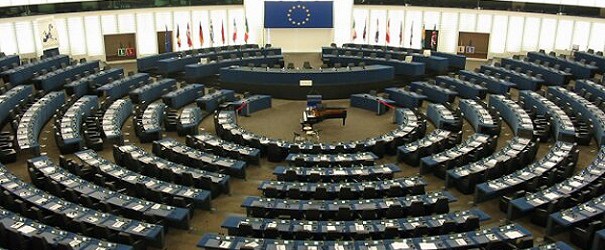The centennial of the so-called Armenian ”genocide”, to be commemorated by the Armenians of the world and their sympathizers on 24 April 2015, can be evaluated from three perspectives: historical, legal and political. It is fascinating that although historically, the ”genocide” industry has failed, in the face of irrefutable facts and documents and without any legal recognition, in terms of politics, certain accomplishments are evident. Namely, the politically motivated endorsement of the Armenian agenda by some Western nations. Why this Armenian myth does get political backing?
Unlike history or law, the politics are more amorphous by nature and thus, imply freedom of action. Its peculiarity lies in the pursuit of social self-interests by every social group in their political performance. In the modern age however, instead of governance, the politics resemble more the manipulation via a complex hierarchy of the elites and pseudo elites, and is subordinate to variable natural factors and actions of the subjects in the society, including the different degrees of multifactor reflexes caused by multidimensional signals that are provoked by inadequate actions.
Therefore, the aforementioned prompts a conclusion that the politics can advocate ethno-mythological claims that run counter to the historical facts and normative legal acts. Yet, there is a certain extent or certain boundaries. When the issue moves into a legal plain, the vintage point shifts, rendering populist and emotional by nature declarations pointless, being rejected by the legal decisions that are based on the international norms and national constitutions.
In the modern Western society, and especially within the political elite, one of the key attributes of democracy is the independence of the state institutions. It provides maneuverability to the politicians on certain issues. For instance, draft legal acts, calculated to reap the votes of the constituents of the Armenian descent, favoring the Armenian ”genocide” myth get submitted. These draft legislatures receive legal evaluation and eventually fail, either on the parliamentary floors or like in case of France, in the Constitutional Court. Ultimately, the politicians get the necessary support, the failure of the passage of the draft legislatures is explained by the independence of state institutions and finally, the promises are renewed. At the end of the day, the strained relations between Turkey and certain governments return to their normalcy, while Armenian government launches its propaganda machine by overstating the significance of these developments with an objective of distracting the public attention from dire socioeconomic grievances.
Some of the most notable failures of the Armenian ”genocide” industry in the recent years happened in the Central Asia, where they have been particularly active, thanks to objective legal assessment of the problem. After the 2005 when Dogu Perincek called the Armenian ”genocide” claims ”an imperial lie” during a demonstration in Switzerland, the Switzerland-Armenia Association eventually sued him. The court in Lausanne found Perincek guilty of racial discrimination in 2007. However, he challenged the court’s verdict in the European Court of Human Rights (ECHR) and accused Switzerland of violating the freedom of expression.
The ECHR granted this motion on 17 December 2013. However, the Swiss government filed an appeal in 2014. The trial that took place on 28 January 2015 exposed the absurdity of the decision that denial of the genocide was indeed a crime. Despite that final verdict is due at the end of April, the court proceedings demonstrated that first, criminal punishment for the denial of the ”genocide” was a blatant violation of the Article 10 of the with regard to human rights and freedoms, including the freedom of expression. Second, the events in the Ottoman Turkey of 1915 cannot be labeled ”genocide” due to the lack of consensus and the ongoing debate. Finally, adoption of a certain decision on this issue is well beyond a mandate of any national parliament.
As we all know, on 28 February 2012, the French Constitutional Court (Constitutional Council) adopted a law criminalizing denial of the Armenian ”genocide”. This piece of legislature was passed by the National assembly – the lower house of the French Parliament in late 2011 and the Senate – the upper house of the Parliament in early 2012. The law envisaged 45 thousand Euro fine and 1 year prison term for the rejection of the Armenian ”genocide”.
The decision of the German government adopted on 22 January 2015 had a ”cold shower” effect on Armenians. Three German MPs raised the following questions with their government: ”Will the events of 1915 be viewed as a genocide? Will there be an event held commemorating its centennial?” Response of the German government was rather unequivocal: ”The events predating the adoption of ”The Convention for the Prevention and Punishment of the Crime of Genocide” by the UN General Assembly in 1948 cannot be classified as genocide. Theses on genocide are the subject of the scientific research. The parties of the scientific discussions must be Turkey and Armenia. They are the ones to set up research groups”. The statement also made clear that ”no event was scheduled to commemorate the centennial of those events”.
The course of events demonstrates that despite the great effort on the part of the Armenian government and the diaspora in particular, the Armenian ”genocide” industry is close to exceeding its ”credit limit”. Many political declarations were adopted that saw their legal evaluation and substantial amount of funds was spent to that end. The ”genocide” centennial that Armenians of the world are so assiduously working on is nothing but a psychological target point linked to historical chronology – last chance to capture the attention of the global community. Drastic diminishment of Armenia’s political relevance casts a shadow even upon the role played by the leaders of different nations in supporting the Armenian myth on certain levels as a part of the great Armenian show. Apparently, the Armenians that turned unjustified hatred and groundless claims against the neighbors into an ideological guideline are now sensing the entire burden of this failed policy.
Badal AHMADOV
PhD in Sociology

























































